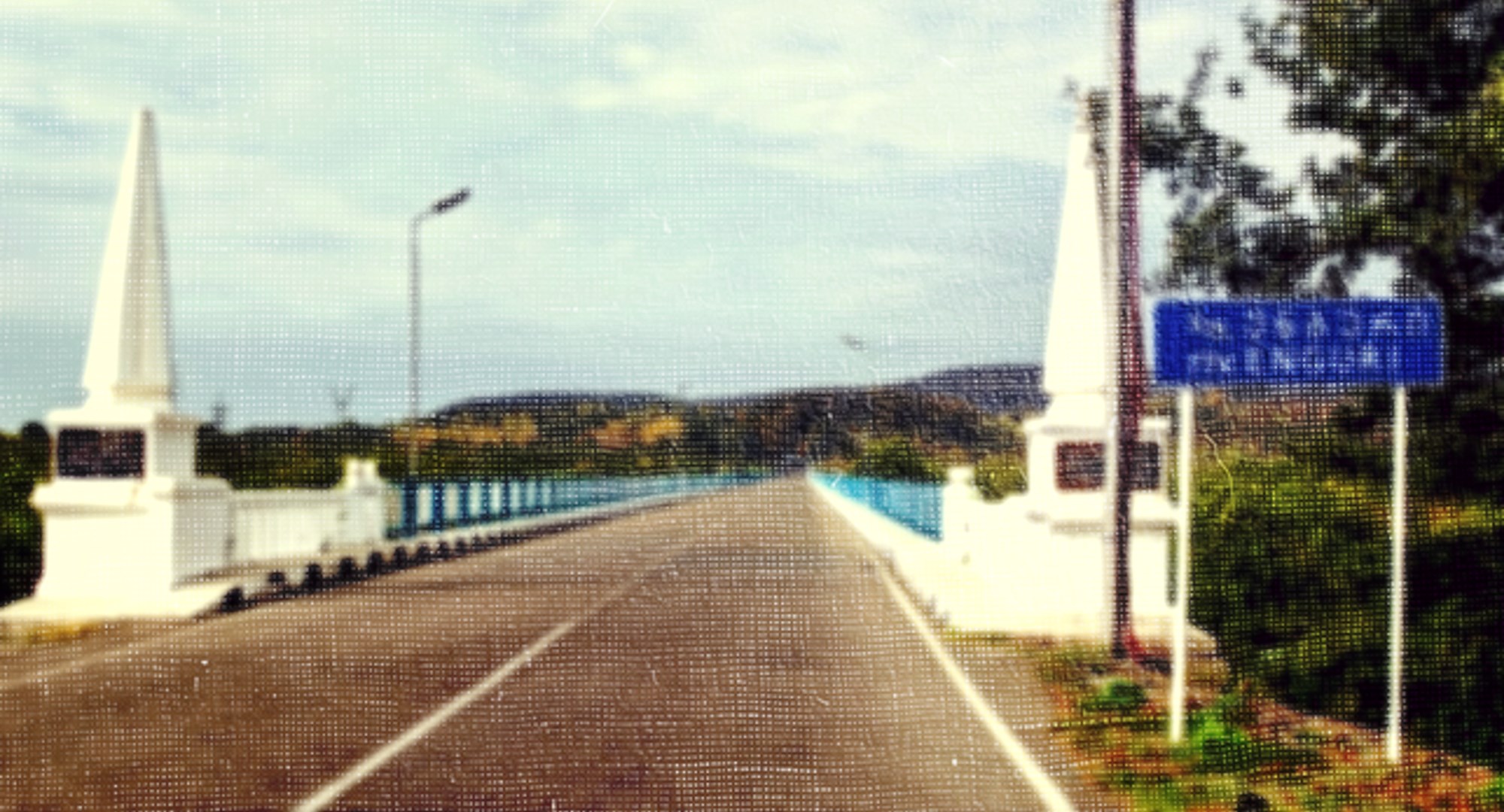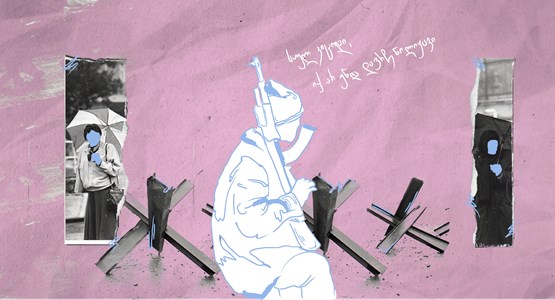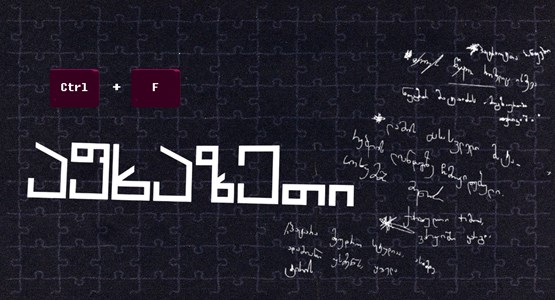
The Border in the Pocket | A conversation with Gaelle Le Pavic
21.11.2024 | 8 Min to readGaelle Le Pavic - Doctor in Social Work, at the United Nations University; Institute on Comparative Regional Integration Studies and at Ghent University, Belgium
______________________________
Gaelle’s academic research covers the topic of Social Services Provision within and across contested borders with the example of Transnistria, Abkhazia, and the Samegrelo Zemo Svaneti region, using a border lens, she observes the provision of social services across the dividing lines between Abkhazia and the Samegrelo region of Georgia as well as across the contested border between Moldova and Transnistria.
“What particularly interests me are bordering practices that extend beyond the physical demarcation of borders to impact the daily lives of individuals, especially concerning access to and provision of social services. Here bordering practices are even more salient given the contestation of dividing lines or border, the denomination itself is contested” - notes Gaelle.
In discussions about Abkhazia, the terminology surrounding borders is often contested in Georgia, where the official narrative is about an ‘occupation line’ (saokupatsio khazi). Many Georgians agree with this narrative, viewing Abkhazia as “a part of Georgia occupied by Russia”. However, some Georgians, particularly those who traverse the Enguri checkpoint, daily, commonly refer to it as a border. Indeed, this division between Georgia and Abkhazia is like a border for them. As described by a man commuting daily between Gal/i [1], and Zugdidi: "arriving at Enguri from Abkhazia, you will first go through ‘a Russian border’, being checked by Russian border guards with a presence of the FSB. Then comes the ‘Abkhaz border’ where Abkhaz border guards are stationed. After crossing the Enguri bridge, you reach ‘the Georgian border’,” where the Georgian police manage the registration process of those entering from Abkhazia to Georgia. Additional plainclothes police officers monitor the situation to ensure compliance with the registration process. Yet Georgian authorities emphasize that there is no border between Abkhazia and Georgia. However, these checks create an impression for those navigating between Abkhazia and the Georgian-controlled territory, that they are going through what feels like a border and not only one border but three, as emphasized by this daily commuter.
It is a well-embodied, routine for those navigating the contested Abkhazian-Georgian border which creates a framework shaping their perspective on the status quo of the past war. Crossing at Enguri involves systematic procedures including from the Georgian side, the Georgian police register any commuter and routinely search vehicles. All these routines foster the perception that indeed, one is crossing a border. Thus, in Samegrelo, it is more common to hear people referring to the Georgian-Abkhazian divide as a border rather than an ‘occupation line.’
Interestingly, discussing the border resonates with the perception of Abkhaz as well, even though many Abkhaz, when mentioning ‘the border,’ are referring to the one with Russia and the checkpoint at Psou River.
Additionally, there are Georgians, who have never been to the Enguri/Ingur crossing point and are surprised when informed that the Georgian police operate there, conducting document checks. Some Georgians assert that Russians have established the border there, reinforcing the narrative that ‘Russia occupies Abkhazia’. While I respect this point of view, as a researcher, I need to acknowledge that many Abkhaz I’ve interviewed, particularly about access to and provision of social services, emphasize that Russia does not occupy them. One of them emphasized this during an online interview by saying “Look, I am speaking to you from Sukhum if you were here, we could go for a walk, and you would not see any Russian tanks. The Russians are at the border and that’s it”.
Researchers interviewing the Abkhazian elite highlighted that this narrative was presented to the Abkhazian population as such – “Russians are coming but they will only be at the border to protect it from the Georgians. Russians will not occupy Abkhazia”. Thus, Russian troops are instructed to keep a very low-key profile in Abkhazia, avoiding behaviours that would suggest that they are ‘at home’, such as going around with military vehicles and displaying military equipment prominently. This strategy aims to preserve the credibility of the narrative that Abkhazia is an independent state and, from the point of view of many Abkhaz, their own country and nation. Most of the younger generation in Abkhazia have never visited Georgia, shaping their perception and representation of the country through mediated sources such as (social) media. For example, Facebook is very popular in Abkhazia, providing avenues for individuals to connect and access information that breaks through certain forms of isolation. However, despite these digital connections, some forms of ostracization persist and are even reinforced against the backdrop of Russia’s war in Ukraine. For example, international (non-governmental) organizations are now unable to transfer funds to run projects in Abkhazia directly. They are restricted from conducting any training or implementing projects in Abkhazia without the approval of the Georgian authorities, according to the Law on Occupied Territories in force in Georgia since 2008. Consequently, any activities funded by international organizations in Abkhazia must be framed as humanitarian in nature, making endeavors such as social entrepreneurship more complicated.
Coming to Georgia is challenging for Abkhaz, as they not only have to navigate through an approval process involving the Abkhaz Security Service, but also some may encounter social pressure ‘not to go to the enemy’. This pressure persists even when accessing the program of free access to healthcare for Abkhaz individuals in Georgia. I documented the case of an elderly and respected Abkhaz woman who passed away from Covid at Rukhi Hospital. Her body was then repatriated to Abkhazia, but neighbors would not even attend her funerals. However, some Abkhaz use this program, some even enjoy visiting Georgia and going sightseeing in Tbilisi. For others, free access to healthcare is perceived as compensation from Georgia, with a sentiment such as ‘at least Georgia can do this for us’. This contrasts with the intention of Georgia in designing the program, which aimed to make Georgia more appealing to Abkhaz who may ultimately consider reunification with Georgia.
Some Abkhaz emphasize that they will never set foot in Georgia, even to access the free healthcare program, viewing Georgia as an ‘enemy’. Conversely, others use this benefit but keep a low-key profile within their social circles to avoid scrutiny. There are instances where an individual lost their jobs after posting photos on social media depicting their visit to Georgia.
There are various strategies of dissimulation, such as parents taking their children to Tbilisi for regular medical check-ups, but concerned that upon returning to Abkhazia, the children would start telling their friends that Tbilisi was great and Georgia is fantastic, so they fabricated stories about visiting places in Russia instead. The sustainability of this approach raises questions, particularly as the children grow older and begin to realize that they were actually not in Russia but in Georgia.
Regrettably, I am unable to conduct research in Abkhazia which makes me closer to the many Georgians who face similar restrictions. This is especially painful for those Georgians who are internally displaced. I’ve documented many stories from individuals who have memories of their homes and really dream of the time when they can return.
I have observed the Enguri/Ingur crossing multiple times and went to the Pakhulani /Saberio crossing, which sees significantly less traffic as it is exclusively pedestrian and further from the main road. However, it tends to be busy in the mornings due to children from Saberio, located on the Abkhazian-controlled side, going to school to Pakhulani on the Georgian-controlled side, and then returning home in the afternoon. The Enguri/Ingur crossing is much bigger and is now the main crossing point between Abkhazia and Georgia. It is estimated that an average of 2,500 individuals cross there daily.
As we discuss circulation across contested borders, even Schengen countries have become more reluctant to grant visas to Abkhaz, carrying a Russian passport issued by the Russian consulate in Sukhum/i. Previously, Schengen visas were often approved for projects funded through EU programs, but now most attempts to secure visas for Abkhaz participants traveling to Schengen countries are not successful.
Respondents frequently cited Russia’s full-scale invasion of Ukraine as the primary reason for this tightening of visa regulations. Additionally, the person in charge plays a significant role, and under Ardzinba’s leadership, it was more challenging. There is an ongoing approximation of Russian and Abkhazian social and economic space; further contributing to the tightening of the contact between Abkhazia and Georgia.
Moreover, many Abkhaz used to travel through Sochi using international Russian passports, and now they find their mobility even more constrained. This further complicates their interactions with Georgian counterparts, as fewer Georgians can cross to Abkhazia.
During my fieldwork in Samegrelo, including at the Enguri/Ingur crossing point, I observed that family is the primary motivation for going to the Gal/i district, while economic reasons drive people from Gal/i district to Zugdidi. They come to buy and sell products at the Zugdidi market, and Georgian residents of Abkhazia come to collect benefits such as pensions in Georgian ATMs.
In a publication focusing on social services provided to survivors of domestic violence (DV) in the Samegrelo region, I documented cases of Abkhaz survivors crossing from Abkhazia to Samegrelo to access social services [2]. This is in part explained by the absence of any law addressing domestic violence (DV) in Abkhazia. and consequently, there is no systematic service for survivors, such as hotlines and shelters. Services are available during working hours (e.g., from 9 am to 6 pm), prompting individual initiatives to fill a gap in social protection. Volunteers and activists in Abkhazia use personal mobile phones as a substitute for a hotline and host survivors in their homes. In the Samegrelo region, there is only one shelter providing round-the-clock support for DV survivors, along with a day reception center offering comprehensive services in Zugdidi. Survivors must declare themselves as ‘victims’ of domestic violence to access the shelter, initiating a process to recognize them as DV potential victims. This status is necessary to access municipal or state-level services in Georgia.
Reporting to the Georgian police poses a significant challenge for Abkhaz. To cross into the Georgian-controlled territory, Abkhaz must complete a questionnaire and, in most cases, undergo an interview with the Abkhazian Security Service (SGB), which many perceive as humiliating and intimidating. This process becomes even more daunting for Abkhaz survivors of DV, as they have to interact with Georgian authorities, leading many survivors to renounce to access services altogether. In this context, the role of the Georgian CSO operating the shelter in Zugdidi is crucial. The CSO can accommodate DV survivors who do not want to report their cases to the police, including those residing in Abkhazia and particularly, those identified as ethnically Abkhaz. However, funding from donations becomes essential, as the CSO cannot rely on municipal funding for the survivor’s stay in this case. Regardless of whether a DV survivor coming to the CSO has engaged with the police, s/he is required to complete a survey after three days. This survey is then submitted to a state commission responsible for determining the individual's status as a ‘victim of abuse’ (See Article 16 of the 2006 Law On Elimination of Domestic Violence, Protection and Support of Victims of Domestic Violence for further details on this process).
These are the intricate details that NGOs must always consider. These nuances hold significant meaning for individuals who must navigate bureaucratic hurdles and social stigmas to access support across contested borders. For instance, in Transnistria donor organizations supported the establishment of a hotline for survivors of human trafficking; and one additional extension was also made for the survivors of domestic violence. However, donors did not take into account the difference in communication systems, including phone dials, between Moldova and Transnistria. The hotline was initially set up using the phone dial system of Moldova, which posed accessibility challenges for Transnistrian residents. In response, the local CSO operating the hotline advocated for adopting a Transnistrian phone dial system to ensure accessibility without additional costs or technical barriers. This example underscores the impact of contested borders beyond their physical manifestations. Contested borders not only affect individuals when crossing them or facing denial but also affect their daily lives, including accessing essential social services. My research documents these impacts, highlighting how contested borders shape the lived experiences of individuals. I engaged with an international donor who would like to set up a hotline for survivors of DV in Abkhazia and the representative did not think about this phone dial difference.
Examining the disparities in legal frameworks regarding domestic violence provides valuable insights into the limitations of social services. Given the ongoing approximation of social and economic spaces between Abkhazia and Russia, exploring developments in Russia to understand some of the dynamics in Abkhazia becomes pertinent. For instance, Russia’s decision in 2014 not to sign the Council of Europe Convention on Preventing and Combating Violence against Women and Domestic Violence, commonly known as the ‘Istanbul Convention’ underlines the geopolitical complexities surrounding social service provision. Russia justified its refusal to sign the convention by citing concerns about security and its potential impact on traditional family values, as evidenced by a letter signed by 200 members of the Russian parliament[3]. This stance highlights the significant geopolitical considerations involved in delivering social services. Despite addressing issues related to social welfare, such as combating domestic violence, the reluctance to ratify the Istanbul Convention reflects broader geopolitical tensions. This case serves as a compelling example of the politicization of social services, wherein security concerns are invoked to oppose initiatives addressing social issues. Thus, the provision of social services becomes entangled in geopolitical narratives, illustrating the intricate interplay between security agendas and social affairs.
In my research, I have also documented and analysed the case of methadone users in Abkhazia who cross daily from Abkhazia to the Georgian-controlled territory to access methadone a treatment forbidden in Abkhazia. Methadone, an opioid used in Opioid Substitution Treatment (OST), is administered daily in liquid doses as part of the methadone program under consideration here. As a result, users from Gal/i, Ochamchira/e, and even Sukhum/i must commute daily to Rukhi to drink their methadone dose. This routine involved significant financial and time costs for these users. Consequently, this group has repeatedly petitioned local medical staff and the Georgian Ministry of Health, Labour and Social Affairs to allow for the provision of methadone doses for at least 5 days, reducing the need for daily crossings.
In an academic paper, I analyze their advocacy efforts, which been unsuccessful so far. Furthermore, the Georgian authorities plan to relocate the methadone program to the village of Natsuluku, situated further from the Enguri crossing point than Rukhi. This potential move may further exacerbate the patients’ already challenging circumstances, resulting in a higher dropout of the program.
To conclude, there are three key findings from this research. Firstly, contested borders have significant impacts, not only on the regulation of movement between sides but also on people’s daily lives. These borders affect people’s everyday routines through different legal frameworks, policies, and practices effectively shaping the everyday experiences of residents. Secondly, these contested borders significantly affect the provision of and access to social services as evidenced by examples such as domestic violence and methadone treatment. Finally, after a three-month research stay in Samegrelo, I can say that contested borders have not only impacted the lives of those within the contested territories but also have repercussions on the other side. The concept of borderland illustrates how social and economic interconnections are affected by territorial divisions, with two interconnected spaces existing on the Georgian and Abkhazian-controlled sides. Moreover, this interconnection is reinforced by the presence of a Megrelian population living on both sides in the Samegrelo region and the Gal/i district. It remains to be seen how these contested borders will evolve in an increasingly volatile geopolitical environment.
______________________________
[1] Abkhazian and Georgian denominations of places differ. In the text, an inclusive denomination is used: Sukhum/i, Gal/i, although it does not fully reflect the diversity of naming and transliteration In quotes, I use the denomination as expressed by my interlocutor
I use Abkhaz when referring to ethnic Abkhaz and Abkhazian to designate the overall populations, authorities, and social realities (e.g., Abkhazian Civil Society Organizations)
[2] According to UN Women, the highest prevalence of Intimate Partner Violence (IPV) among ever-partnered women is happening in the Gal/i district with 31,8% over a lifetime and 8,4% over the past 12 months. The figures are lower for Sukhum/i with 10,4% over a lifetime and 3% over the past 12 months, and Gagra with 9,6% and 4,8% respectively.
[3] Russia did not sign the Istanbul Convention, arguing its alleged “incompatibility with the country's existing norms of traditional morality and the foundations of state family policy,” adding fears that the convention will be the vehicle of “gender ideology.” Meduza, Украина Одобрила Конвенцию о Защите Женщин От Насилия, Которую Критики Считают «пропагандой ЛГБТ». Защитит Ли Она Украинок? А Россия Ее Подписала? [Ukraine Has Approved a Convention to Protect Women from Violence, Which Critics See as ‘LGBT Propaganda’. Will It Protect Ukrainian Women? Has Russia Signed It?].”
We Recommend

The Enguri bed is filled in seconds
13.12.2023
Diana in the mirror | Tamar Babuadze
02.10.2024
Why should we forget the past | Nino Lomadze
08.10.2024



